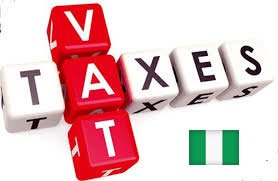- Value Added Tax (VAT) is a tax imposed on the supply of goods and services. Section 8 (1) of the VAT Act requires every business in Nigeria to register for VAT with the Federal Inland Revenue Service (FIRS) within six (6) months of commencement of business.
- Section 7 of the VAT Act vests power of administration of VAT in the Federal Inland Revenue Service, It is a Federal Tax Agency, which is managed by the Federal Inland Revenue Service (FIRS). VAT is charged on most goods and services provided in Nigeria and also on goods imported into Nigeria.
- Businesses add VAT to the sales price of the goods or services they offer in Nigeria and the tax is borne by the final consumer of goods and services because it is included in the tax paid.
- VAT is calculated at a flat rate of 5% of the cost of services and products and is charged on a wide array of goods and services, except items that are on the VAT exempt list or zero-rated. Exported goods is an example of zero rated VAT goods, the implication is that the said exported goods is VAT-able but is rated at zero percent, such that VAT is collected from the foreign buyer and also input tax is refundable.
- An example of how VAT is applied to sale is as follows: where a boutique owner you sells a TM Lewin shirt for N20, 000, the VAT chargeable on that is 5% of the value – N1000, the business is therefore supposed to sell the shoes to members of the public for N21,000. The company retains N20, 000 and then remits the N1000 to the FIRS.
- Note that businesses that want to do business with state, federal or local government agencies are also required to show evidence of registration with VAT and past remittance. The registered person has to make regular VAT returns and either pays to or receives from the FIRS the difference of the input tax and the output tax. VAT returns are normally made monthly to the FIRS tax office.
- Goods and services that are specifically exempted from paying VAT are as contained in the first schedule of the VAT Act, and such include the following:
- All medical and pharmaceutical products
- Medical services
- Basic food items (Any unprocessed staple food item. Packaged or not packaged)
- Books and educational materials
- Baby products
- Services rendered by community banks, people’s bank and mortgage institutions
- Plays and performances conducted by educational institutions as part of learning
- Fertilizer, locally produced agricultural and veterinary medicine, farming machinery and farming transportation equipment
- All exports
- Plant and machinery imported for use in Export Processing zone or free trade zone
- Plant, machinery and equipment purchased for utilization of gas in downstream petroleum operations
- Tractors, ploughs and agricultural equipment and implements purchased for agricultural purpose.
- In calculating VAT for a month, businesses are required to calculate the amount of VAT they received from customers in a month and offset that with the VAT they paid to suppliers for goods and services. If the amount of VAT paid is more than the VAT the business collected, then the business is owed a refund. If the amount paid is less than the VAT the business collected, the business must remit the difference.
- Note that it is only goods purchased or imported directly for resale and goods used for the direct production of any new product on which the output tax is charged can be used to calculate the offsetting tax. The VAT on overhead, services and general expenses cannot be used to calculate the offsetting VAT. These expenses are expected to be deducted before arriving at taxable profits and so do not qualify.
- Section 15 (1) requires a business owner to remit VAT it has collected by the 30th day of the month following the month the goods or services were sold. For example, if a business sells a product on the 15th day of July, VAT on the said sale must be submitted by August 30th of the same year to avoid any penalties. The penalty for non-remittance of VAT to the FIRS is N5, 000 per month for every month that the amount is past due.
Fatimah Usman-Aliyu
Pro-bono Partner
07036988982




